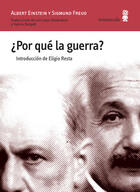
From the exchange of letters between these two great intellectuals, a text emerges that will endure in subsequent eras as a great classic on contemporary society and its contradictions: what is at stake in this reflection is war, self-destructive forms, attempts by political institutions to build peace, disenchantment, the daily work of soulless bureaucracies, utopias and ideal impulses, passions and the many reasons why it is worthwhile to pursue common efforts. And the dialogic form gives the text a depth that perhaps no scientific treatise could achieve; immediate and rigorous at the same time, this debate opens a horizon that transcends the era in which it was produced, the 1930s, and sheds light on the contours of a problem that, while it has changed over time, persists.















